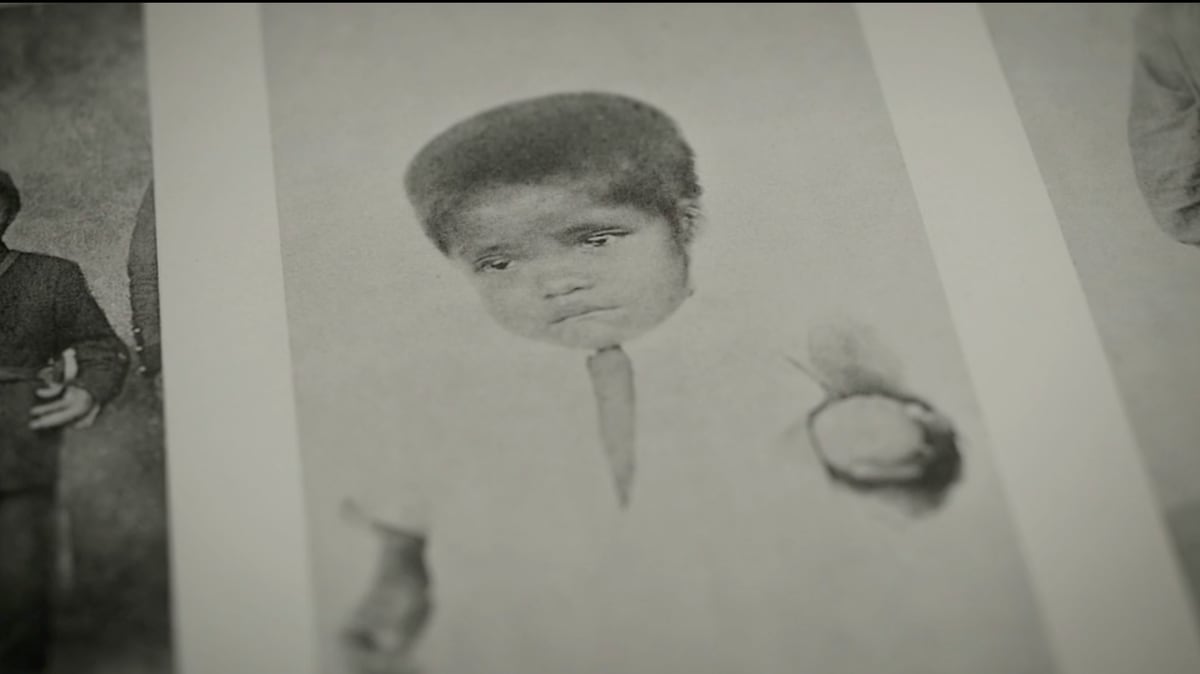The great protective tree of his nights of fear is still there, guarding the paths of his childhood.
Nice Nailantei Leng'ete watches you with ancient gratitude, and perhaps thinks that that acacia is the only character that has remained inert in this windy savannah of southern Kenya, guarded by the mighty Kilimanjaro, appearing and disappearing.
More information
Alternative Ablation Rituals and Shelters
Fighting ablation since age eight
Women and girls in Kenya doubly hit by COVID-19
after the race of the clouds.
Under that tree, Nice tried to make herself invisible as a child and in her village, Nomayianat, in Kajiado county, the
emuatare
ceremony was being prepared
, which is how the Maasai people, to which Nice belongs, call for female genital mutilation, an ancestral rite that for several African ethnic groups represents a necessary step for girls to become adult women and deserve to be asked in marriage.
When she was an eight-year-old orphan, Nice Nailantei Leng'ete, who is now a tall and slender 29-year-old girl with a sweet childish smile, managed to escape the bloody ceremony twice, guided only by a childish instinct impossible to tame: “I didn't want to suffer,” he says, “so I confronted the head of the family, my grandfather, and begged him to let me finish school.
He was stunned by my impudence, but he was a good man and he ended up giving in to my insistence. "
The rest is history.
Because, since then, Nice Nailantei Leng'ete has not only studied until graduation in health management, but together with the NGO Amref Health Africa is very close to eradicating female genital mutilation from Maasai society in the area of Loitokitok, the city closest to her hometown, saving some 15,000 girls from the horror of
emuatare
and involving groups of women, the elderly and especially the
Moran
, the most traditionalist Maasai warriors,
in the change
.
Their stubbornness has imposed itself on the mentality of a tribal and semi-nomadic society impervious to modernity for fear of losing its identity, which allows polygamy to men, but wants women to be "pure" and submissive.
Overcoming all resistance and dedicating her life to the rights of women, Nice has become famous around the world and has won several awards, such as the American Fellowship for Young African Leaders named after Nelson Mandela or the German Annemarie Madison Award. in 2018. She also gave a speech at a recent issue of the Clinton Global Initiative in New York, her voice has been heard in the European Parliament, and in 2018, Time magazine listed her among the 100 most influential personalities in the world.
Despite this international visibility, Nice's great dream remains rooted in her land, which still has a long way to go to achieve the complete liberation of girls from the patriarchal traditions that torment them.
And now that dream is about to come true: it will be called Nice Place and it will be "a safe place where girls can take refuge when they run the risk of being subjected to genital mutilation or forced marriage," says the young woman.
It will function both as a reception center and an academy for women, where girls will receive training in life strategies, leadership and business skills, acquiring strength and capacity to become autonomous.
The academy will host 50 students a year, but the center will be open to any girl, young man or woman who needs protection ”.
For Nice Nailantei Leng'ete, this place also represents a personal need: “Every time I go back to my village,” she confesses, “when I see the smiling faces of intelligent, brave and beautiful girls, I know why I carry out this mission: to fight so that each of them can become the woman of their dreams.
As it happened to me.
A few years ago I inherited the land on which Nice Place will stand and immediately began planning the project.
Today, with only a few months to go before the institution starts working, I feel like the happiest woman in the world ”.
Despite delays due to the covid-19 pandemic, which has also affected Kenya, the works continue and Nice Place, which is a project led by Amref Health Africa in Kenya with the support of Amref Holland and Amref Italy, already it has walls.
"It will have a circular perimeter with a large plaza in the center," explains Nice.
“It will be self-sufficient thanks to simple business models for income-generating activities: first, the land will be cultivated and agricultural products sold.
In addition, Nice Place aims to improve the local bead industry by honing girls' skills in making them and providing them with contacts to market the products.
Finally, its central location, on the road that leads to the Amboseli National Park, offers a unique opportunity to set up a stall that will attract customers, both for a coffee and for buying handicrafts ”.
Of the 31 countries in the world where female genital mutilation is widespread, 27 are on the African continent, but the geography of the phenomenon is varied.
In Somalia, for example, almost the entire female population (98%) has undergone ablation, and the bloodiest form of infibulation.
Very high percentages are also recorded in Guinea (95%), Djibouti (94%), Mali (89%), Sierra Leone (86%) and Egypt (87%), while Niger, Cameroon and Uganda are at the bottom of the list, with percentages less than 5%.
Of the 27 African countries included in the UNICEF reports, in 14 of them more than a million women have suffered the “cut”.
However, although the practice of cutting implies inequality between men and women and an obsession with the control of female sexuality, within the same State there are profound differences from one region to another and between ethnic groups, about 3,000 on the continent African.
This is the case in Kenya, where female genital mutilation affects 21% of women nationwide, but the percentage rises to 98% in Somali communities and 73% among Maasai.
For these warrior shepherds, cutting the clitoris and labia minora is a viaticum of purity for women and an indispensable guarantee of monogamy.
In view of the wedding, the groom pays a dowry to the future wife's family;
the value of the girl is calculated in head of cattle and no one, by tradition, would negotiate the price for a young woman who does not reach the nuptial bed under the conditions considered appropriate, that is, "cut".
An alternative rite to court
But Nice Nailantei Leng'ete has invented an alternative “initiation rite” that respects Maasai customs by cleansing them of blood: “The initiation ceremony is like the traditional one”, he explains, “with dances and sacrifices of goats and cows, but it is not the genitals are cut off and the elders bless the girls' books, notebooks and pens to encourage them to study.
Before the party, the girls take a course on sexual education, personal hygiene and women's rights so that they learn that education is the new circumcision, the only true initiation to adulthood.
Only by going to school can a girl become the woman of her dreams ”.
The Government of Kenya has done a lot against female genital mutilation: it declared it a crime in 2001 and in 2011 it extended the sentence to those who promote it, as well as establishing a Commission to control and eradicate the phenomenon.
But within the confines of the boma, the Maasai camps that face south towards Kilimanjaro, Nice Nailantei Leng'ete has struggled to end the only recognized law, that passed by the elders in the wake of tradition.
And the future will certainly hold other battles: “Now that the world is facing the COVID-19 pandemic, we are concerned about the interruptions in programs to prevent female genital mutilation,” explains Paola Magni, project manager against genital mutilation. female at Amref Health Africa in Italy.
According to the United Nations Population Fund (Unfpa), due to the confinements imposed by the health emergency, two million cases of mutilation could occur in the next decade that would otherwise have been avoided.
Efforts to end early marriages are also slowing down: between 2020 and 2030 there could be around 13 million that would not have happened otherwise.
In Kenya, President Uhuru Kenyatta has pledged to completely eliminate ablation by 2022, eight years from the fifth of the Sustainable Development Goals, but in the meantime, the most recent chronicles still speak of illegal mutilations in the national territory.
In Kericho County, in the south-west of the country, 22 adult women of the Kipsigis ethnic group were hospitalized in early November for the consequences of genital mutilation, and a 60-year-old was jailed, accused of carrying out the practice, according to Kenyan state television reported.
A similar event took place in the same period in Narok County, also in the southwest, where the police arrested 10 women subjected to genital mutilation for their alleged role in the crime.
In the same area of Kenya, the head of social protection, Patrick Ole Ntutu, reported an investigation into some health workers who allegedly performed clandestine mutilations.
While, in late October, some 3,000 girls from the Kuria community in southwestern Kenya paraded in public after the cutting ceremony, waving balloons symbolizing this rite.
The processions, according to the British Medical Journal, were escorted by armed men warning police and anti-FGM activists not to intervene.
For Nice Nailantei Leng'ete we still have to keep our guard very high and, to move forward, it continues to be inspired by the many success stories it has followed over the years.
Like Amina's, promised at age 11 to a moran, a Maasai warrior.
“He was a powerful leader in his community,” Nice recalls, “and so no one dared to speak up.
When I received the news, the wedding was less than a day away: it was a race against time, one of the most difficult interventions of my life.
I was forced to face an entire society supported by dozens of followers of the fiancé.
At last, thanks to the intervention of some members of the community, the people I work with and the government, Amina was saved from danger.
Today the girl is safe, happy, has received an education and has finally been welcomed back by her family, after a long process of raising awareness among all those involved ”.
The same happy ending that Nice foreshadows for all the guests who will soon arrive at its Nice Place.
FUTURE PLANET can follow on
,
and
, and subscribe
here
to our 'newsletter'
.



/cloudfront-eu-central-1.images.arcpublishing.com/prisa/PZBP67YSD5GI7KKEC2MGANZJKA.jpg)

/cloudfront-eu-central-1.images.arcpublishing.com/prisa/L64PMGMKXNDP5EHGZTYIAK3UTU.jpg)








